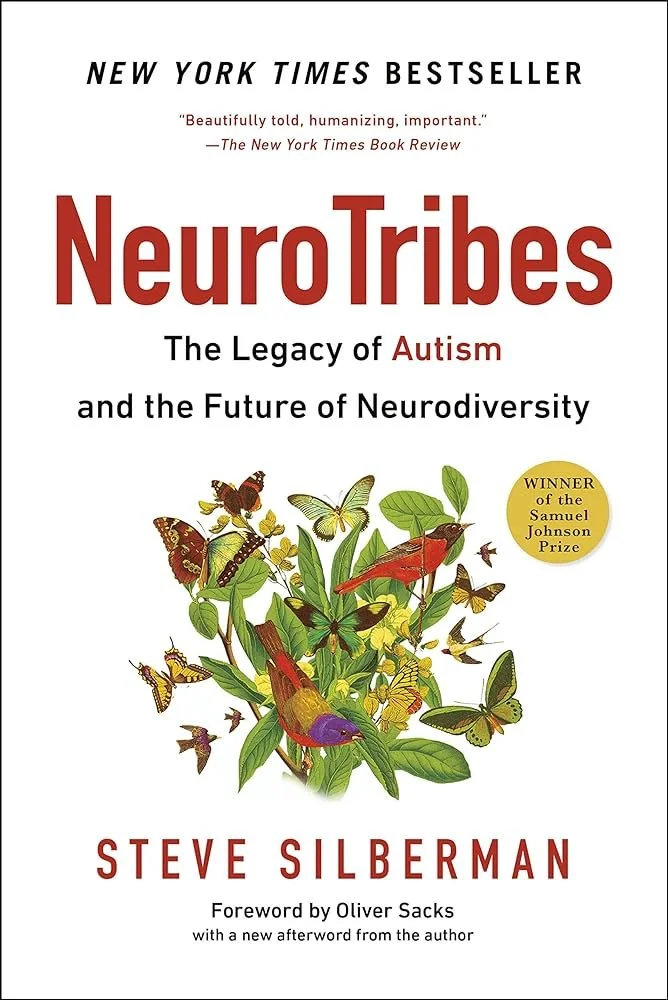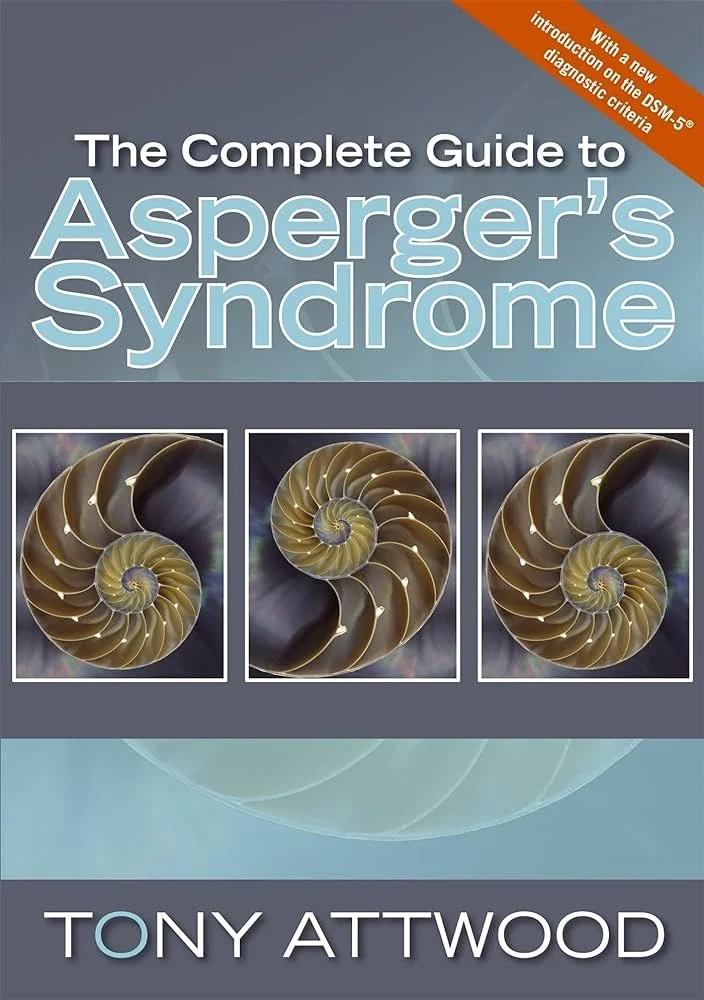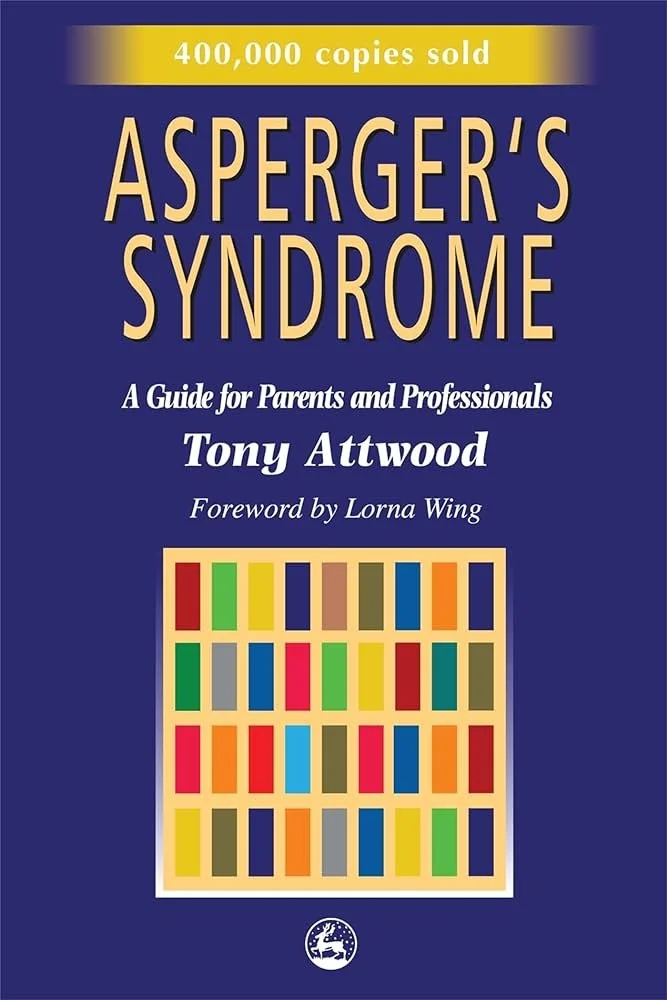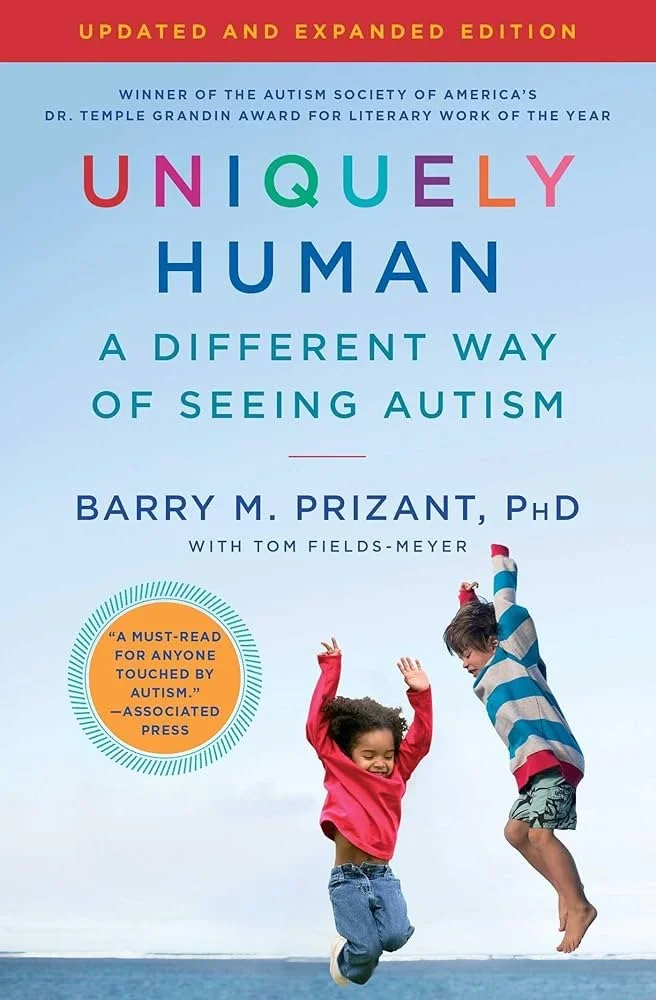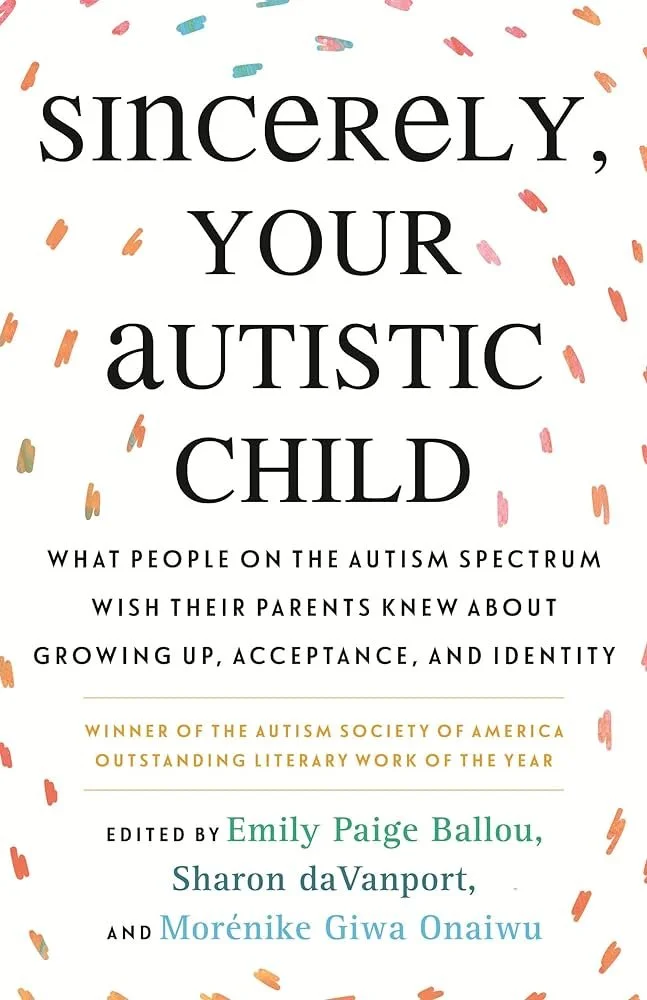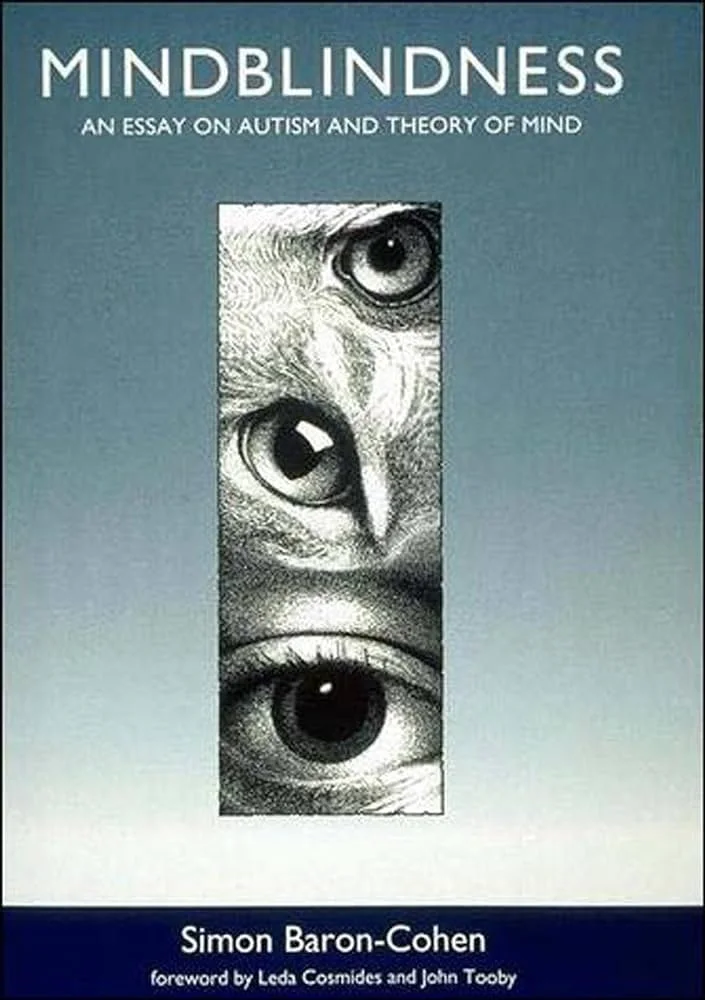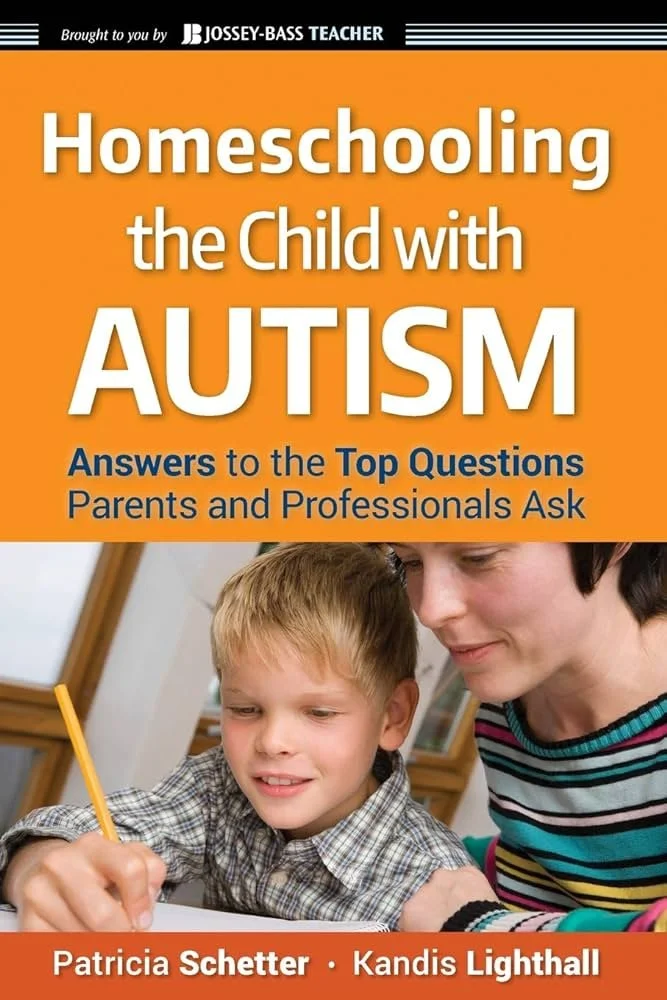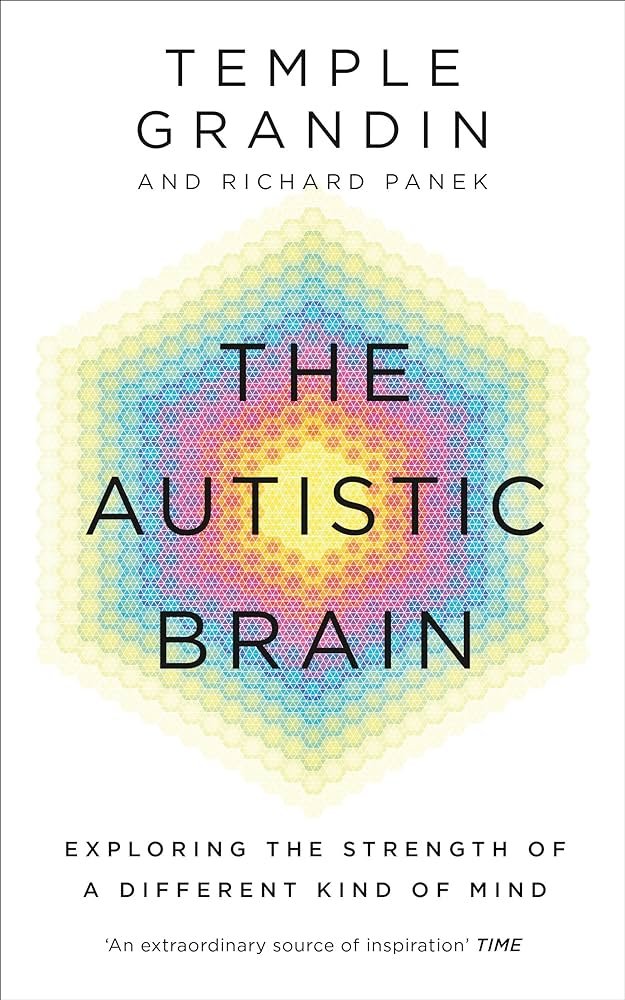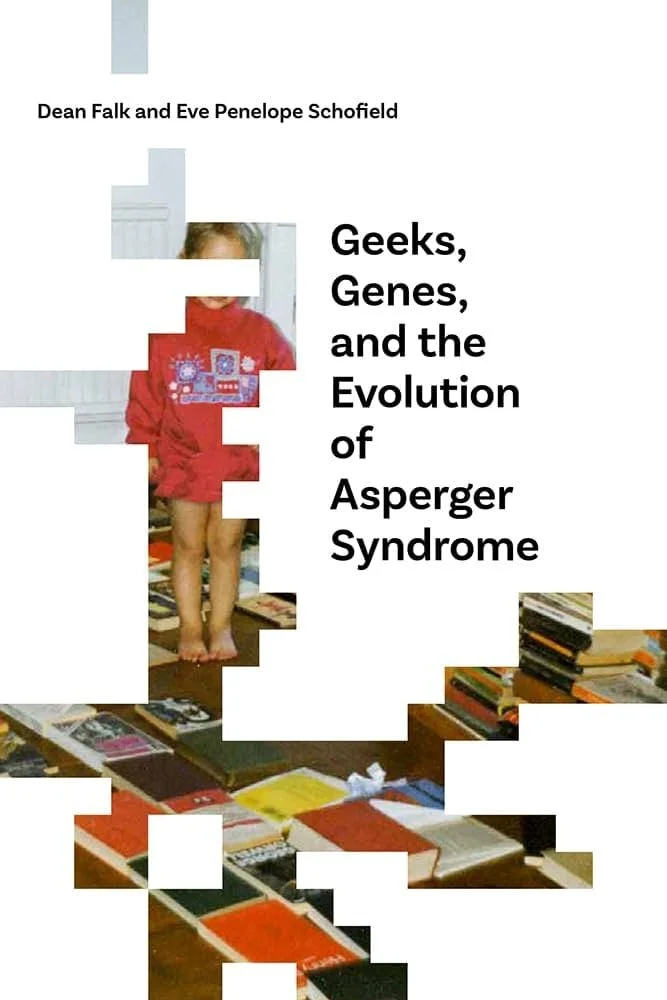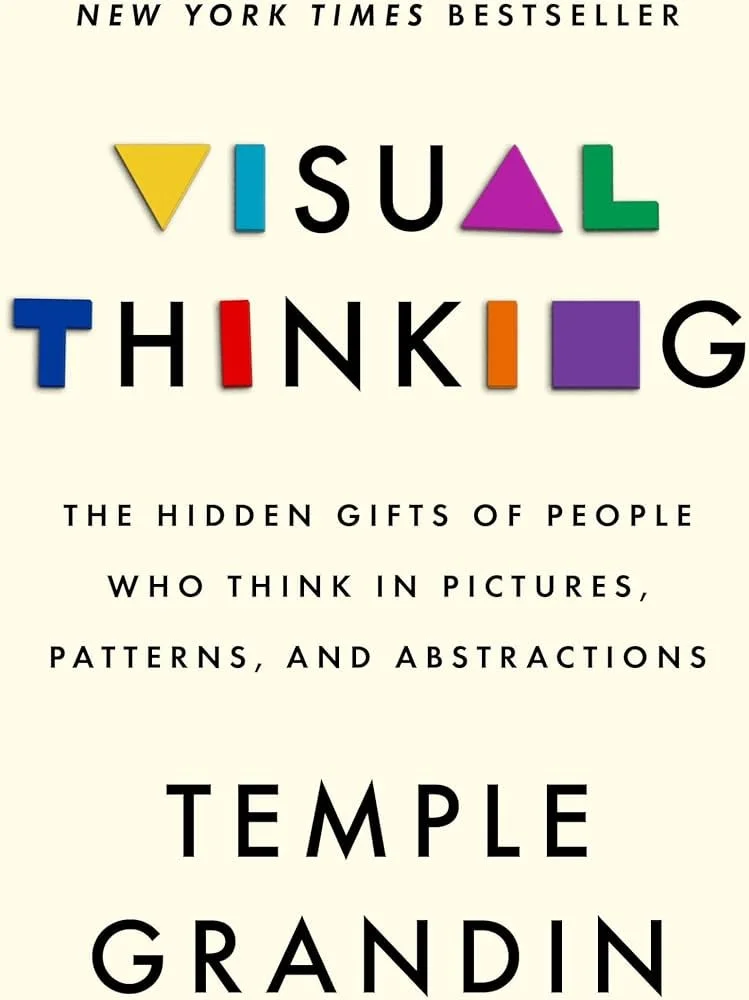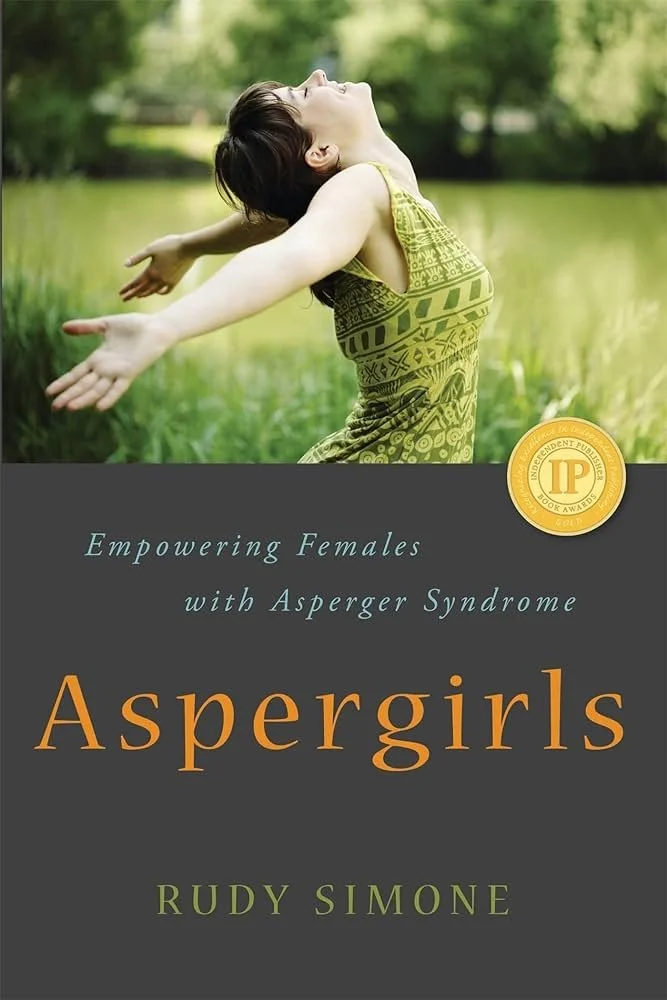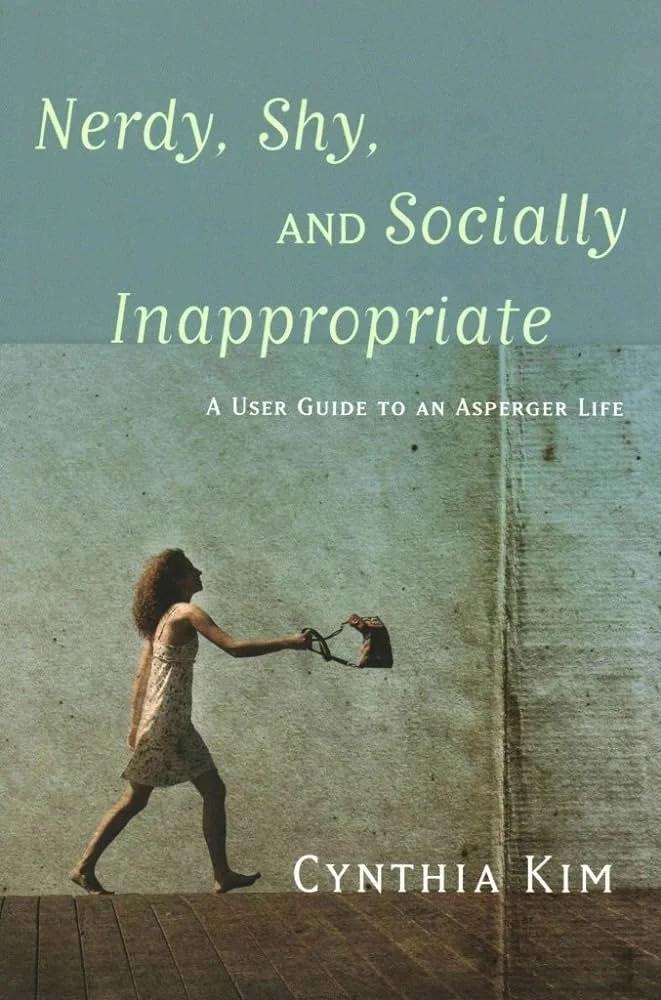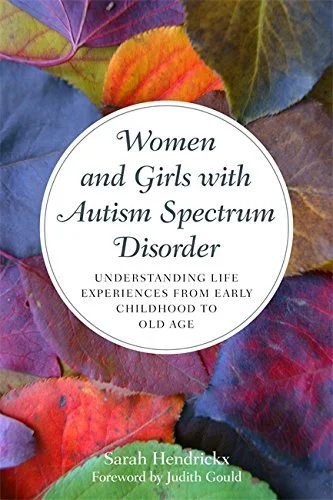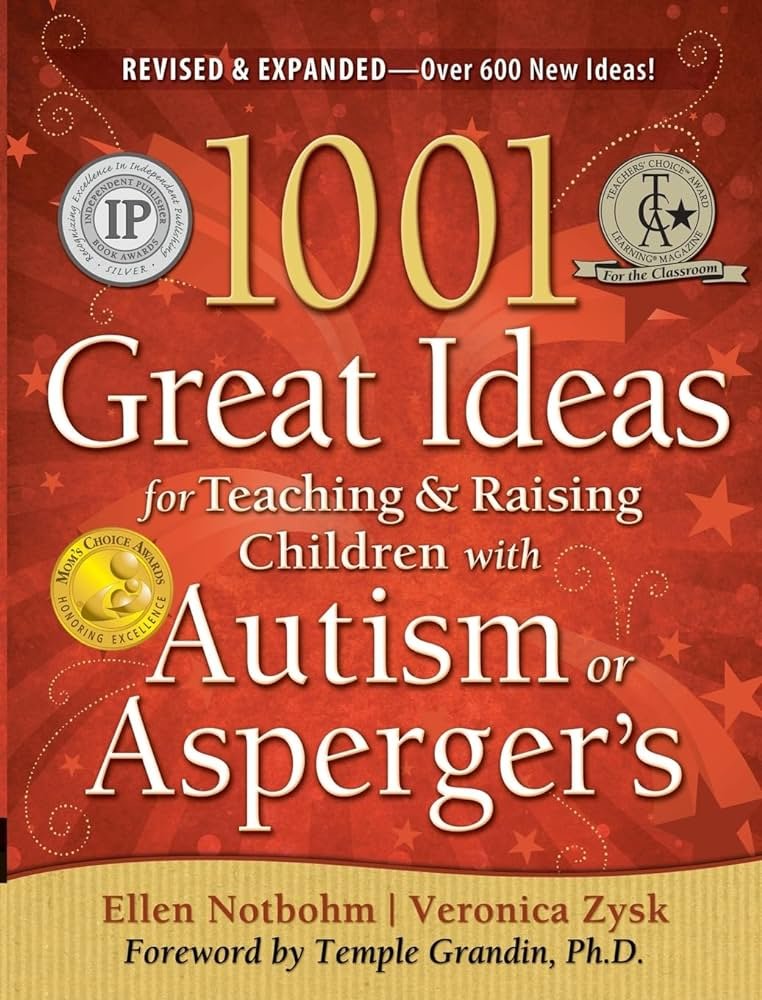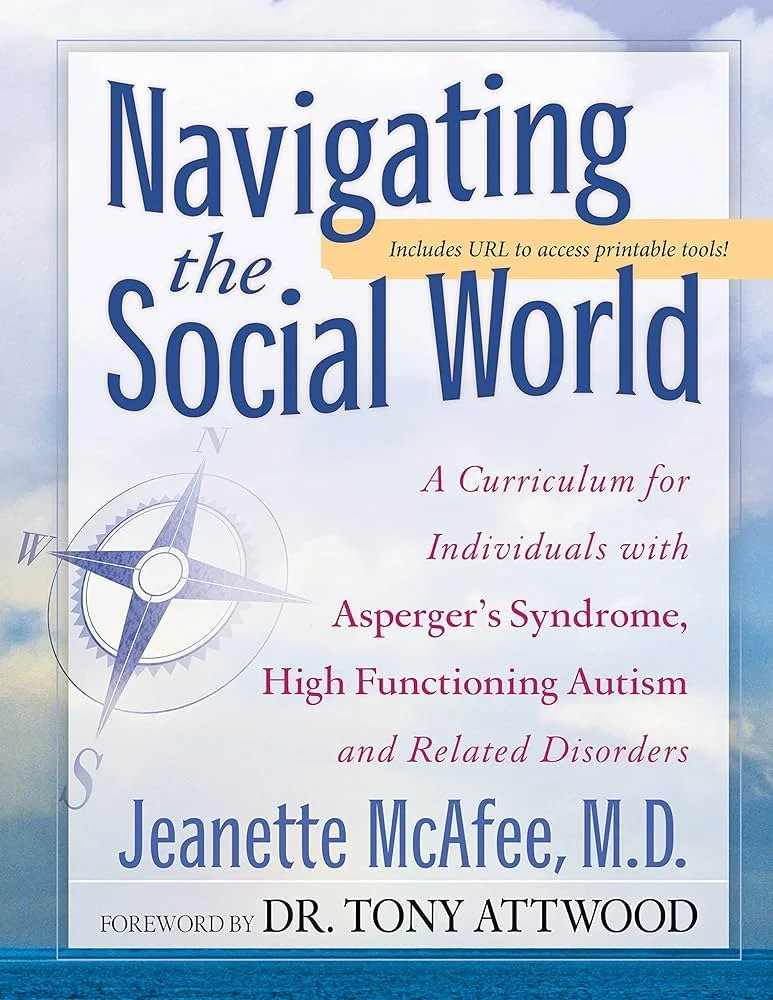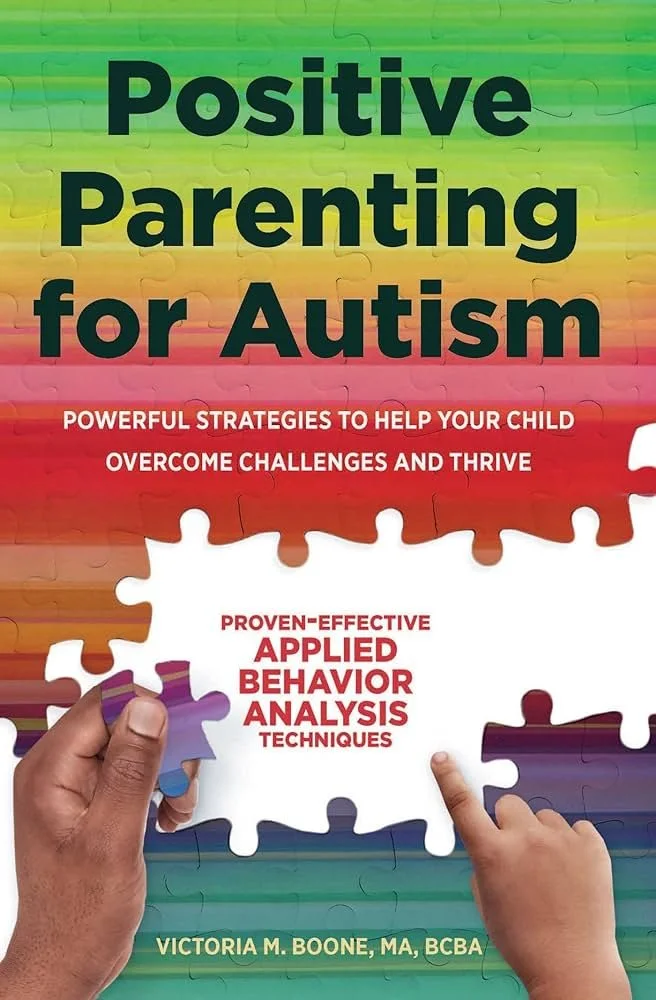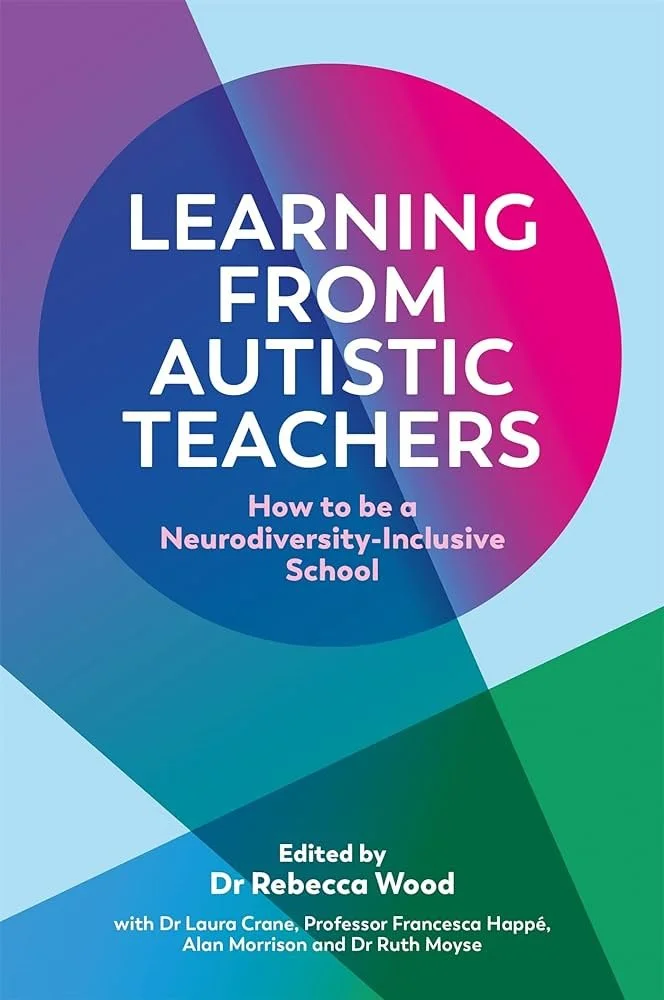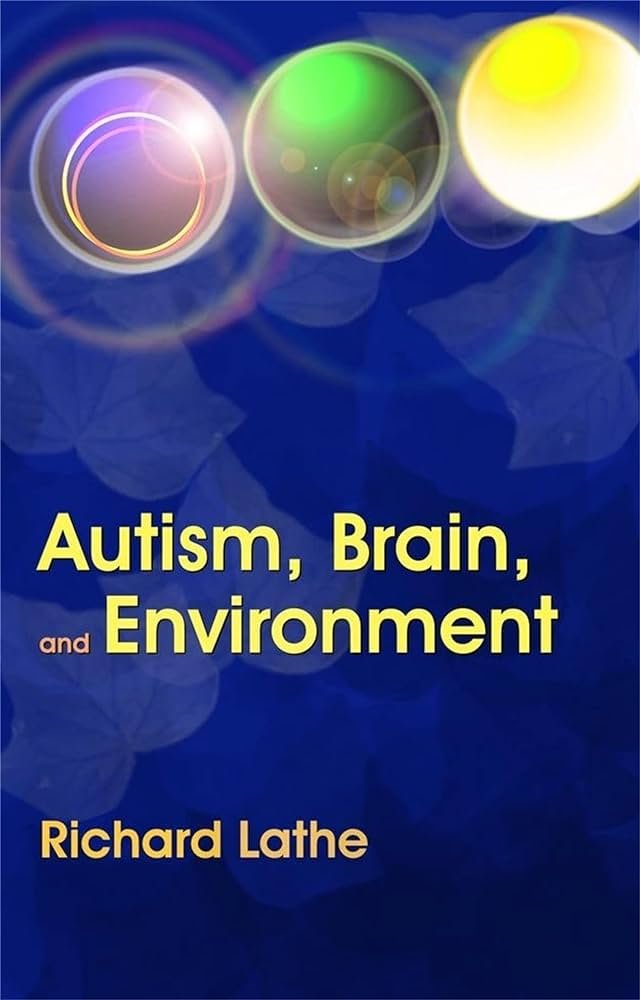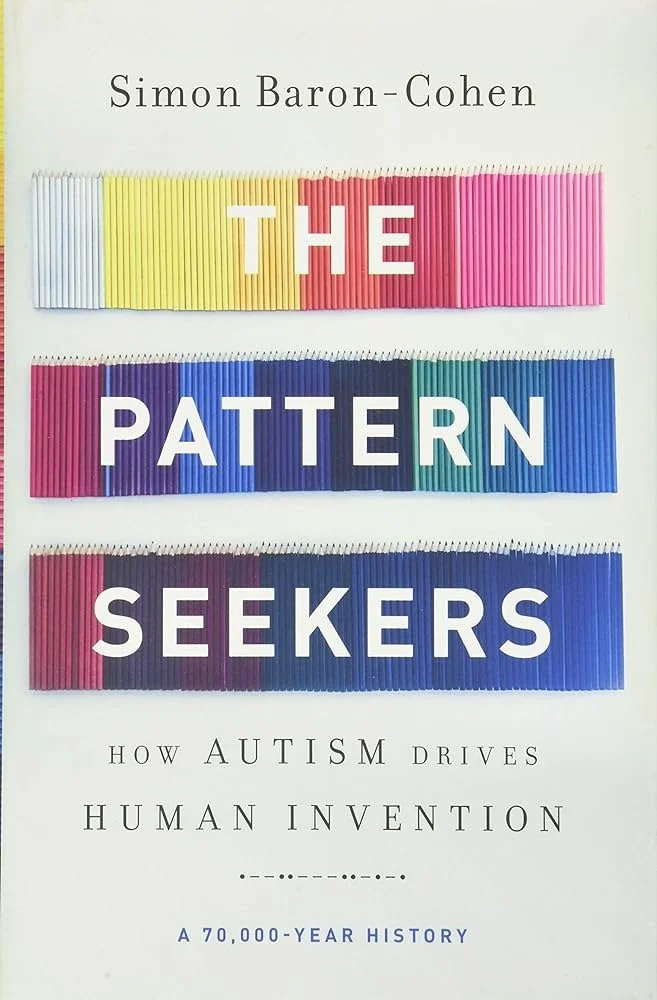
Books About Autism for Parents and Educators
“Understanding the nature of autism is the key to teaching kids with autism how to navigate the world around them.”
Welcome to our curated selection of books about autism for parents and educators! This section is devoted to sharing the titles that have significantly influenced our understanding and approach towards autism. Each book featured here has been carefully chosen for its potential to enhance awareness, offer practical strategies, and foster a supportive environment for individuals with autism. Whether you're looking for insights into the autistic experience, effective communication techniques, or innovative ways to support learning and development, you've come to the right place. Let's collaborate to deepen our comprehension and improve our practices in supporting those on the autism spectrum. Thank you for stopping by!
"Neurotribes" by Steve Silberman dives into autism's history and the concept of neurodiversity, offering a fresh perspective that benefits parents and educators. It helps parents see their neurodiverse children's unique strengths and guides educators on how to create supportive, inclusive classrooms. This book advocates for embracing and celebrating the differences in brain function, enriching our understanding and acceptance of neurodiversity.
Tony Attwood's "The Complete Guide to Asperger's Syndrome" is a detailed exploration of Asperger's, blending research with practical strategies for support. It's an essential tool for parents, educators, and professionals, offering insights into the challenges and strengths of individuals with Asperger's. This book promotes a supportive and inclusive understanding of neurodiversity, helping to foster positive development.
Tony Attwood's "Asperger's Syndrome: A Guide for Parents and Professionals" offers a clear overview of Asperger's, including characteristics, diagnosis, and support strategies. It's an essential resource for anyone looking to understand or support individuals with Asperger's, providing practical advice to improve their quality of life and foster an environment of acceptance and neurodiversity.
"Uniquely Human: Updated and Expanded: A Different Way of Seeing Autism" by Barry Prizant offers a compassionate and insightful perspective on autism, challenging traditional views and emphasizing the unique experiences of autistic individuals. Prizant advocates for understanding and support tailored to each person's strengths and challenges, rather than trying to "fix" them. This approach encourages acceptance and appreciation of autism as a variation of human experience. The book is a valuable resource for parents, educators, and professionals, providing strategies to support autistic individuals in a way that respects their uniqueness and promotes their well-being. Prizant's work fosters a more inclusive society where autistic people are valued for who they are.
"Sincerely, Your Autistic Child" by Emily Paige Ballou is a compilation of personal insights from autistic adults aimed at parents of autistic children. Through letters and essays, it offers advice and reflections on growing up autistic, stressing the need for acceptance and understanding. The book covers key topics such as communication, social challenges, and self-acceptance, making it a crucial resource for parents and educators seeking to support autistic individuals in embracing their identity and leading fulfilling lives.
"Mindblindness" by Simon Baron-Cohen delves into the challenge autistic individuals face in understanding others' thoughts and feelings, a concept crucial for social interaction. This book is particularly useful for parents and educators, offering a framework to better support and teach those with autism. It helps in developing strategies that address the core social and communication difficulties, enriching the understanding of autism and enhancing the way caregivers and teachers connect with autistic individuals.
"Homeschooling the Child with Autism" by Patricia Shetter is a vital resource for parents and professionals, offering guidance on providing a supportive homeschooling environment for children with autism. It covers adapting teaching methods, engaging the child, and developing social skills, addressing common questions and challenges. This book ensures that homeschooling is accessible and effective for autistic learners, making it an invaluable tool for parents and educators alike.
"The Autistic Brain" by Temple Grandin merges personal insight with scientific research to offer an in-depth look at autism's unique strengths and challenges. Aimed at parents, educators, and professionals, it provides practical strategies for supporting autistic individuals to succeed. Grandin advocates for embracing neurodiversity and tailoring education and support to fit the varied learning styles and abilities of autistic people, making it an essential guide for fostering environments where diverse minds can flourish.
"Geeks, Genes, and the Evolution of Asperger Syndrome" by Dean Falk combines personal stories with science to reframe Asperger Syndrome, linking its traits to human evolution and technological advances. Falk highlights the positive contributions of individuals with Asperger's, challenging stigma and advocating for neurodiversity. This book offers parents, educators, and professionals a new perspective on Asperger's, emphasizing its value in society and potential for future innovation.
"Visual Thinking" by Temple Grandin explores the advantages of thinking in pictures, patterns, and abstractions, illustrating how such cognitive diversity drives innovation. Grandin shares personal and others' experiences to highlight the strengths of visual thinkers in various fields. The book offers insights for educators, parents, and professionals on supporting visual thinkers, emphasizing the importance of embracing different kinds of intelligence for societal progress. It's a guide to understanding and valuing the unique talents of visual thinkers, aiming to help them harness their potential.
"Aspergirls: Empowering Females with Asperger Syndrome" by Rudy Simone is a pioneering book that sheds light on the often overlooked experiences of women and girls with Asperger Syndrome. Simone, drawing from her own experiences and those of other women on the spectrum, provides insights into the unique challenges and strengths of Aspergirls. She offers practical advice on topics such as education, friendship, dating, and employment, aiming to empower females with Asperger's to lead fulfilling lives. This book also serves as a guide for parents, educators, and therapists, offering strategies to support Aspergirls in understanding and embracing their identity. Simone's work highlights the importance of recognizing gender differences in the autism spectrum and provides a valuable resource for fostering understanding and acceptance of neurodiversity.
"Nerdy, Shy, and Socially Inappropriate" by Cynthia Kim offers an intimate look at living with Asperger's, combining personal experiences with practical advice for handling its challenges. It's particularly helpful for parents and educators, providing insights into social difficulties and sensory sensitivities, along with strategies for supporting individuals with Asperger's. Kim's guide encourages acceptance and understanding, making it a valuable resource for anyone looking to foster a supportive environment for those on the autism spectrum.
"Women and Girls with Autism Spectrum Disorder" by Sarah Hendrickx provides essential insights into the unique experiences of females with autism, emphasizing how their needs differ from males. It's incredibly helpful for parents and educators, offering guidance on tailored support strategies across life stages. This book is a valuable resource for better understanding and empowering women and girls with autism, advocating for more inclusive support and recognition in both home and educational settings.
"1001 Great Ideas for Teaching and Raising Children with Autism or Asperger's, Revised and Expanded 2nd Edition" by Ellen Notbohm is a comprehensive resource packed with practical tips and strategies for supporting children on the autism spectrum. This book covers a wide range of topics, including communication, behavior management, social skills, and academic support, making it an invaluable tool for parents, educators, and therapists. Its straightforward and accessible approach provides creative solutions to everyday challenges, helping to improve the quality of life for children with autism or Asperger's. The book's extensive collection of ideas encourages a positive and proactive approach to teaching and parenting, offering support and inspiration to those dedicated to helping children with autism spectrum disorders thrive.
"Navigating the Social World" by Jeanette McAfee is a practical curriculum for improving social skills in those with Asperger's, high functioning autism, and related disorders. It provides parents, educators, and therapists with lessons, activities, and strategies to help individuals enhance social interaction and communication. This guide is vital for supporting the social development of children and adults on the autism spectrum, enabling them to engage more effectively in social relationships and the wider world.
"Positive Parenting for Autism" by Victoria M. Boone provides evidence-based, compassionate strategies for parents and educators to support children with autism. Covering communication, behavior, social skills, and more, it offers clear guidance to help children overcome challenges and thrive. This book emphasizes positive reinforcement and the importance of focusing on strengths, making it a crucial resource for fostering the development and well-being of children with autism.
Learning From Autistic Teachers
"Learning From Autistic Teachers" by Dr. Rebecca Wood emphasizes the insights of autistic educators to enhance support for students with autism. It showcases how their unique perspectives lead to effective teaching strategies, advocating for inclusive learning environments. The book provides practical advice for parents and educators, underlining the importance of neurodiversity in education and the value of drawing on the experiences of autistic professionals to improve outcomes for autistic students.
Autism, Brain, and Environment
"Autism, Brain, and Environment" by Richard Lathe delves into the complex relationship between biological factors and environmental influences in the development of autism. Lathe, a scientist with a focus on neurobiology and autism, argues that environmental factors play a significant role in triggering autism in individuals genetically predisposed to the disorder. The book examines how external factors such as toxins, diet, and viruses may affect the developing brain, potentially leading to autistic behaviors. It also explores potential interventions and the importance of addressing both environmental and biological aspects to support individuals with autism. This comprehensive analysis is invaluable for parents, educators, and healthcare professionals seeking to understand the multifaceted nature of autism and how to provide effective support and interventions.
"Home Educating Our Autistic Spectrum Children: Past, Present and Futures" by Terri Dowty is a comprehensive guide that explores the journey of homeschooling children on the autism spectrum. Dowty combines personal stories, practical advice, and educational strategies to offer a holistic view of the challenges and rewards of home education for these children. The book examines the evolution of homeschooling practices for autistic spectrum children, providing insights into how parents and educators can adapt teaching methods to meet the unique needs of each child. It not only addresses the present state of home education but also looks forward to future possibilities, encouraging a flexible and individualized approach to learning. This resource is invaluable for parents considering or currently undertaking the homeschooling of their autistic spectrum children, offering encouragement, support, and practical solutions to navigate their educational journey.
"The Pattern Seekers: How Autism Drives Human Invention" by Simon Baron-Cohen explores the connection between characteristics of autism and the capacity for human innovation. Baron-Cohen suggests that the ability to see patterns and approach the world in systematic ways, traits often associated with individuals on the autism spectrum, has played a crucial role in the development of major inventions and artistic achievements. Through a mix of historical examples, psychological insight, and neuroscience, the book shows how this distinct approach to problem-solving has fueled progress in technology, art, and science. This work provides educators, parents, and anyone fascinated by human cognition with a fresh view on autism, challenging prevailing attitudes and underscoring the significant contributions made by autistic people to our society. "Pattern Seekers" is an inspiring read that highlights the value of diverse thinking styles and the creative potential inherent in viewing the world from different angles.

